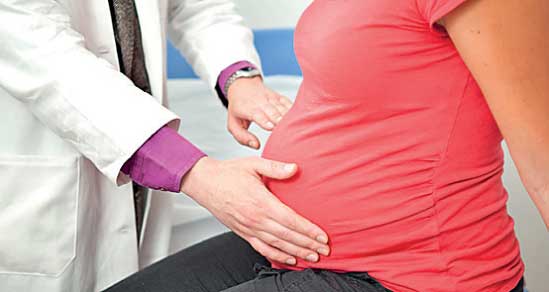Tuesday Feb 17, 2026
Tuesday Feb 17, 2026
Wednesday, 12 October 2016 00:01 - - {{hitsCtrl.values.hits}}
 Reuters Health: Surgical procedures during pregnancy are generally safe, new research indicates.
Reuters Health: Surgical procedures during pregnancy are generally safe, new research indicates.
“Clearly, surgery during pregnancy should only be considered if absolutely necessary,” said Paul Aylin, study co-author and an epidemiologist at the Imperial College London in England.
But when expectant mothers do need to undergo surgery, “the information provided in our analysis may give reassurance,” he told Reuters Health by email.
Aylin and colleagues used England’s national hospital database to identify nearly 6.5 million pregnancies between 2002 and 2012, including 47,628 in which the moms had nonobstetric surgery.
The most common operations involved the abdomen, dental issues, the nails and skin, orthopaedic conditions, the ear, nose or throat, the perianal region, and the breast.
Overall, surgery during pregnancy was associated with a higher risk of birth complications, but the amount of that increased risk that could be blamed on the surgery was relatively small, according to the authors. They found that for every 143 surgeries, there was one extra case of a hospital miscarriage. In addition, there was one extra stillbirth among every 287 women who had surgery, one preterm delivery among every 31 surgery patients, one underweight baby for every 39 women in the surgery group, and one maternal death for every 7,962 surgeries.
Approximately two-thirds of all abdominal operations were laparoscopic – but laparoscopic abdominal surgery was linked with a nearly four times higher risk of miscarriage compared with open abdominal surgery, the authors found.
Fewer than 6% of the operations occurred within one week of the end of pregnancy, however.
Overall, after accounting for other factors that might increase expectant mothers’ risks for these bad outcomes, nonobstetric surgery was found to increase the risk by 0.7% for miscarriage, 0.4% for still birth, 3.2% for preterm delivery, 2.6% for low birth weight, 4% for caesarean section, and 0.013% for maternal death, the authors reported in Annals of Surgery.
“This study puts it into perspective that other risk factors are at play and this is the amount of risk that can be blamed on the surgery,” said Dr. Daniela Carusi, an obstetrician gynaecologist and director of Surgical Obstetrics at Brigham and Women’s Hospital in Boston.
“The risk you can attribute to surgery may be small, but it’s not zero,” said Carusi, who was not involved with the study. “Because of that, it’s important to consider the safest alternative.”
In some cases, it might be better to wait. “But if it’s a medical condition, like appendicitis, then surgery may be the better option,” she said.
SOURCE: bit.ly/2dlhyr0 Annals of Surgery, online September 14, 2016.